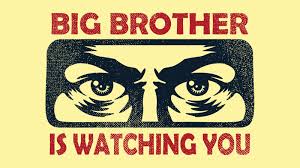
Universal Human Tyranny
According to dictionary.com, tyranny may be defined as:
- arbitrary or unrestrained exercise of power
- despotic abuse of authority.the government or rule of a tyrant or absolute ruler
- a state ruled by a tyrant or absolute ruler.
- oppressive or unjustly severe government on the part of any ruler.
- undue severity or harshness
- a cruel or harsh act or proceeding;
- an arbitrary, oppressive, or tyrannical action.
Merriam Webster’s definition is closer to to that of classical understanding
- oppressive Power
- a government in which absolute power is vested in a single ruler
- a rigorous condition imposed by some outside agency or force
- an oppressive, harsh, or unjust act : a tyrannical act
Wikipedia on the other hand gives us a better view:
The word ‘tyranny’ is used with many meanings, not only by the Greeks, but throughout the tradition of the great books. The Oxford English Dictionary offers alternative definitions: a ruler, an illegitimate ruler (a usurper), an absolute ruler (despot) or an oppressive, unjust or cruel ruler. The term is usually applied to vicious autocrats who rule their subjects by brutal methods. Oppression, injustice and cruelty do not have standardized measurements or thresholds.
In classical times and even throughout the 20th century there were practical limits to tyranny. For one, thing, tyrants were limited by their lifespan if nothing else. Alexander the Great, perhaps the most successful classical tyrant, systematically organized a hierarchical structure that was unlike any the world had ever seen. It collapsed when he was no longer around to inspire and frighten.
Today, one tyrant can simply replace another, leaving the tyrannical system in place. For instance, North Korea has apparently figured out a way to institutionalize and perpetualize tyranny, but not universalize it.
The American founders viewed King George as a tyrant. Fortunately, his power was also practically limited by the inconvenient fact of the Atlantic ocean. Nevertheless, students of the American revolution realize that it took 8 years to finally win our independence. And some would contend that the issue wasn’t really settled until the conclusion of the War of 1812. Winning the American Revolution was not a foregone conclusion. (King George arguably wasn’t a tyrant. He was the legitimate ruler of the British empire rather than a usurper (like Napoleon) per the Oxford English Dictionary definition.)
The limits of tyrannical power are shrinking as technology advances. The recently published Report of the Commission on the Unalienable Rights (summarized here), discusses how China is utilizing technology to exercise control over its populace:
Nowhere has the ambition to establish a “wholly surveilled†society progressed as far as in China. The Communist Party of China has built an aggressive internet censorship system known as the Great Firewall of China. A high-tech version of its discredited forbears, the Iron Curtain and the Berlin Wall, the CCP’s Great Firewall seeks to lock its citizens in a digital-information prison. Beijing’s “social credit system,†moreover, is based in large part on emerging AI and cyber software that permit the aggregation and integration of many different data streams about an individual. These include surveillance equipment and facial recognition programs that record everywhere one goes; smartphone credit card apps that track purchases in real time; performance monitoring on the job and in school; ratings on social media — by one’s friends, neighbors, and associates — of a person’s conformity and loyalty; and so on. An authoritarian regime can not only use these tools to track and punish individuals but also exploit them to monitor and control entire groups, such as disfavored religions or ethnicities.
Meanwhile, predictive-behavior algorithms might — over time and with enough data accumulated from the large scale surveillance of society — improve state security agencies’ ability to persecute members of disfavored groups by determining with great accuracy when, where, and how they will meet.
The Hegelian dream of a universal state might not be as far-fetched as (some of us) would wish. Leo Strauss wrote in his Restatement in On Tyranny
From the Universal Tyrant however there is no escape. Thanks to the conquest of nature and to the completely unabashed substitution of suspicion and terror for law, the Universal and Final Tyrant has at his disposal practically unlimited means for ferreting out, and for extinguishing, the most common efforts in the direction of thought.

This was written in middle of the 20th century, and Strauss was prognosticating about the logical course of events as consequence of abandoning philosophical realism about the nature of man and that the best society doesn’t mean utopian perfection or complete homogeneity. The society that offers the best chance at maximizing human potential is the best society.
Modern man refuses to rely upon the weakness or foibles human nature. To do so would be to acknowledge the futility of trying to achieve the perfect society. This utopian dream is not something he is prepared to give up. Instead of relying on human character, mechanizing the state and removing human agency is seen as the path to a completely “fair” society. In order to do that, he must redefine the goals of human existence, not as some unachievable quest for virtue, but as a quest for self-satisfaction.
 The posts are coming!
The posts are coming!


0 comments
Kick things off by filling out the form below.
Leave a Comment